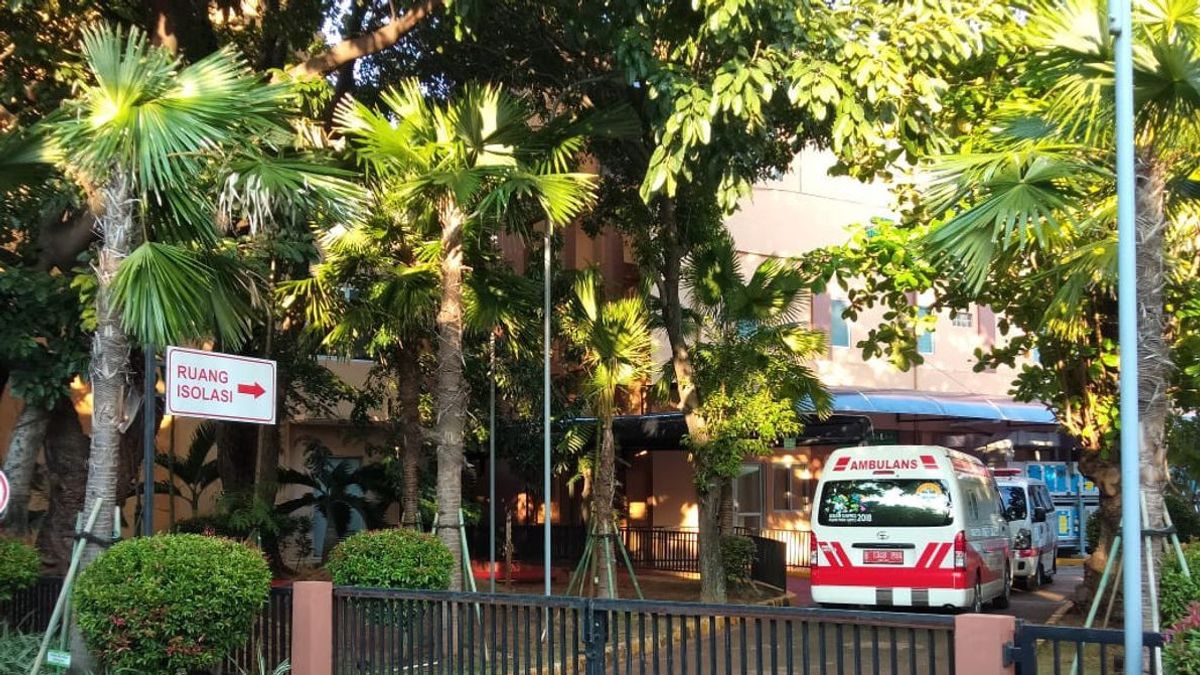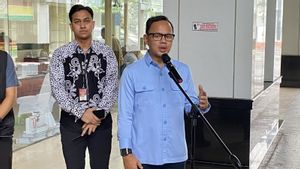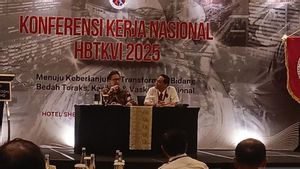JAKARTA - In recent weeks, the name Sulianti Saroso Infection Center Hospital (RSPI) has often been heard. The reason is that RSPI Sulianti Saroso is one of the first hospitals to accommodate COVID-19 cases number one and two. To this day, RSPI Sulianti Saroso is still the leading referral hospital.
The name Sulianti Saroso may not be as loud as Tjipto Mangoenkoesoemo, the figure behind the name RSCM. In fact, Sulianti Saroso was a very influential figure during his time. Sulianti Saroso is familiarly called Sul. Like Tjipto Mangoenkoesoemo, besides in the health sector, Sul is also active in politics. He was born on May 10, 1917 in Karangasem (Bali) and enjoyed his childhood by traveling.
Sul, who was born in Bali, took her basic Dutch language education at Europeesche Lagere School (ELS), before continuing her studies at the Gymnasium in Bandung. After graduating from there, Sul enrolled in the Medical College (Geneeskundige Hoge School) in Batavia. In 1942, Sul finished his education as a doctor. Sul officially followed in the footsteps of his father, Doctor Sulaiman, who was also known as a high priest in Bagelen-Banyumas.
Rosihan Anwar recorded Sul's progress as a medical student in Sulianti Saroso's obituary in Kompas daily (1991). Sul was described by Rosihan as a prominent student. "In the colonial era, there were not many female doctors in Indonesia. And Sul was the standout. As a medical student, she attracted attention because she was beautiful, sociable, and because she was a sport girl, she liked to play tennis, ”Rosihan wrote.
During the Japanese occupation, Sul chose to work in the internal medicine department at the Center Burgelijke Ziekenhuis (the forerunner of the RSCM). He stayed there until the beginning of independence. Right after the capital was moved to Yogyakarta, Sul also moved. In Yogyakarta, he worked at Bethesda Hospital. When war broke out in Yogyakarta, Sul, who was still a young doctor at that time, did not remain silent.
Sul has high initiative. He was adept at helping fighters in the front line of the resistance. In fact, Sul went straight down to send medicines to the guerrilla pockets of the republic. Apart from that, Sul also organized a soup kitchen to meet the needs of guerrillas on the battlefield. Nyali Sul is described as transcending many things, including caring for his own life. Sul was not afraid of the whir of bullets or cannon blasts.
Not only weapons, Sul also faced the laws of the Dutch colonial government. In Yogyakarta too, Sul was detained for two months. Sul's role was enormous. He not only supported the fighting troops in Yogyakarta, but also to the Tambun front in West Java, Gresik, to Demak. Not only his courage and expertise in the medical field, Sul is also known as one of the most accomplished politicians. Sul's political move was mentored by Soebadio Sastrosatomo, a member of the KNIP.
In politics, Sul had tasted the atmosphere of the Youth Congress of the Republic of Indonesia as Pemuda Putri Indonesia (PPI). Subsequently, together with his friends, Sul formed a women's laskar which was named the Women Assistants for the Struggle (WAPP). In addition, Sul was also included in the delegation of the Indonesian Women's Congress (KOWANI) at the Inter Asian Women Conference in India in 1947.
Pioneer of Family Planning
"He excitedly asked the government to make decisions that support contraceptive use through the public health system."
So wrote Terence H. Hull in a book entitled People, Population, and Policy in Indonesia (2005). After the revolutionary period, Sulianti Saroso began to refocus on the world she loved, the world of medicine. Sul, who was working at the Ministry of Health at that time, began to make many achievements. Sul even received a scholarship from the World Health Organization (WHO).
At that time, Sul focused on studying maternal and child health systems in European countries. Thus, Sul understands very well, an example of European welfare is nothing but a commitment to sex education and pregnancy control. Right after returning to Indonesia, Sul brought up the idea of maternal and child health, which included controlling the birth rate through sex education and the family planning movement.
Efforts to garner support for this idea were carried out by Sul through RRI Yogyakarta. At that time, Sul's action angered the Vice President of the Republic of Indonesia, Mohammad Hatta. Hatta's response was described by H. Hull. "Even though his economic ideas were very advanced, Bung Hatta considered the discussion on this subject to be inappropriate and unreasonable to be used in mass communication and as a matter of family life for the Indonesian people.
In one of the interviews with the Pikiran Rakyat media, Sul also voiced various conditions to encourage the implementation of family planning. One of them, about the large number of people who go to the dukun because of the lack of midwives. As a result, the infant mortality rate was very high at that time. On the other hand, the population of Indonesia is increasing. "Mothers should be brave and willing to restrict births," said Sul.
A wave of resistance then returned to Sul's movement. The biggest rejection reaction was conveyed by the Yogyakarta Women's Association (GOWY), which consists of religious leaders, doctors and midwives. All of them thought that Sul's ideas tended to violate human rights, kill young babies, and even perpetuate prostitution.
Because of the many rejection reactions, Sul was once reprimanded for not discussing his idea in front of the public. However, Sul refused. Efforts for efforts continue. until finally what Sul pioneered began to gain a place in the New Order era through the family planning program.
On the basis of his consistency and dedication in the field of medicine, his name is fragrant throughout the country. Organizations like WHO have appointed him as a member of the executive body. Sul has also held the position of Chair of the Health Assembly or Health Council, which has the right to determine the Director General of WHO.
In WHO history, Sul became the second woman to chair the World Health Assembly in 1973, after doctor Rajkumari Amrit Kaur from India in 1950. This dedicated figure died on April 29, 1991 at night. The next day, Sul was buried in Karet cemetery, Jakarta. Four years later, his name was appointed as the name of the special hospital for infectious diseases in Tanjung Priok, North Jakarta.
The English, Chinese, Japanese, Arabic, and French versions are automatically generated by the AI. So there may still be inaccuracies in translating, please always see Indonesian as our main language. (system supported by DigitalSiber.id)









